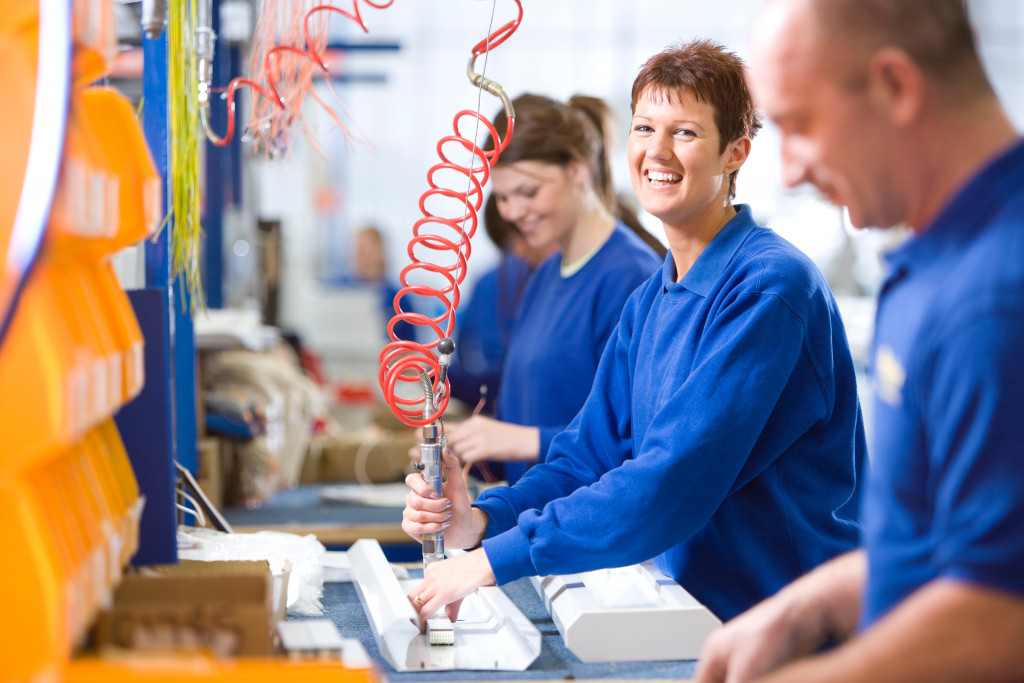If you’re in charge of a manufacturing plant, you know that there are always areas that need maintenance. It’s important to stay on top of these maintenance needs so your plant can continue running smoothly and efficiently. Here are the areas of your manufacturing plant that usually need maintenance:
Machinery
Your manufacturing plant’s pieces of machinery usually need maintenance. Maintenance is important to keep your machines running effectively and efficiently. It also helps to prevent unexpected downtime and costly repairs.
There are three main types of maintenance: preventive, predictive, and corrective. Preventive maintenance is performed regularly, such as daily or weekly, to prevent problems. Predictive maintenance is based on data collected from the machine, such as vibration or temperature readings, to identify potential problems. Corrective maintenance is performed after a problem has occurred to repair the damage.
No matter which type of maintenance you choose, developing a plan tailored to your machines’ specific needs is important.
Piping systems
A properly functioning piping system is crucial to the operation of any manufacturing plant. Without a reliable way to move materials, production grinds to a halt. However, pipes are subject to wear and tear and often need to be repaired or replaced. That’s why it’s important to have a maintenance plan in place for your piping systems.
If you wish to have your piping systems checked, contact professionals with experience in this area. They’ll have the knowledge to troubleshoot any problems that may arise. They’ll also have the latest diagnostic tools, such as a ValScope-Pro, which allows them to analyze pipes without needing to remove them. This tool can save you time and money in the long run. Regularly inspecting your pipes and making repairs as needed can keep your plant running smoothly and avoid costly downtime.
Electrical systems
Your facility’s electrical system is one of the most important aspects of keeping your business up and running. Not only does it provide power to run your machinery, but it also helps to protect your equipment from damaging surges. However, electrical systems can also be a source of problems, and they often require maintenance to keep them running smoothly.
Loose connections can cause sparks and damage equipment, while dirt and debris can build up on contacts and cause electrical problems. As a result, it is important to have a regular maintenance schedule for your facility’s electrical system. To do this, you can hire a qualified electrician to inspect and maintain your system. They’ll use specialized tools, like a datalogger or multimeter, to identify issues and make repairs as needed. Keeping your electrical system in good condition can minimize downtime and avoid costly repairs down the road.
Ceilings and floors
Your plant’s ceilings and floors usually need maintenance to stay in good condition. Over time, these surfaces can become stained or damaged, making them difficult to clean or repair. In addition, ceilings and floors are often high-traffic areas that can suffer from wear and tear. As a result, it is important to keep up with regular maintenance to keep your plant running smoothly.
Some of the most common maintenance tasks include cleaning, repairing cracks or holes, and replacing damaged tiles. You can also use sealants or coatings to protect your ceilings and floors from water damage, dirt buildup, and other problems. You can hire a professional contractor specializing in this area to get the job done. They’ll use specialized equipment, such as a floor scrubber or pressure washer, to clean and maintain your facility’s surfaces.
HVAC system

Your manufacturing plant’s HVAC system is one of the most important parts of your facility. It is responsible for keeping the air inside your plant clean and cool, and it also helps to regulate humidity levels. However, like all systems, your HVAC system will eventually need maintenance. Some common HVAC maintenance tasks include cleaning the air filters, checking the Freon levels, and inspecting the ductwork.
You can also consider investing in newer, more energy-efficient equipment like smart thermostats. These devices can help to reduce energy costs and make your facility more comfortable for your employees. And to maintain your HVAC system, you should work with a professional contractor with experience in this area. They’ll have the tools and expertise needed to keep your system running smoothly, so you can stay focused on your core business operations.
Once again, several key areas in your manufacturing plant require regular maintenance to keep them functioning properly. These include your machinery, piping systems, electrical system, ceilings and floors, and HVAC system. You can minimize downtime and avoid costly repairs in the long run by keeping up with these tasks.

